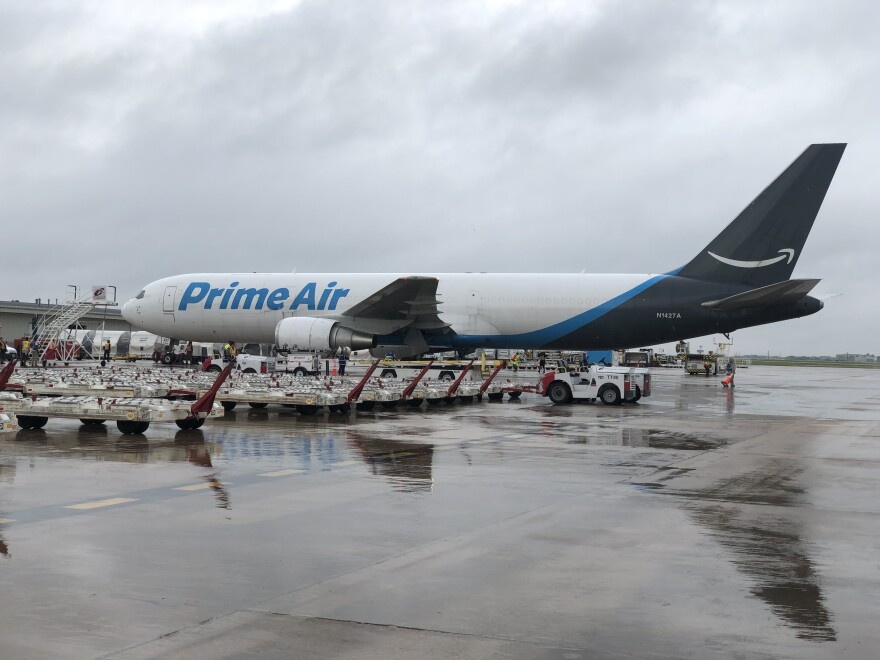Cardboard shipping boxes piling up in your home during the pandemic? There's a good chance more than a few traveled on a plane through Austin-Bergstrom International Airport. Air cargo is booming as companies like UPS, FedEx and Amazon Air accommodate a surge in online shopping. Now, airport officials are ready to spend millions on a new facility to meet demand.
"It is a very big increase [of cargo]," Austin Aviation Department's Chief of Business and Finance Mookie Patel said. "Companies were constantly asking for more space, more space. We started creating a waiting list."
A new $23.3 million, 90,000-square-foot cargo facility will have enough room to park at least three Boeing 767 airliners in front. The airport will use its own money on the project and own the building. Airport planners hope to start construction this summer and and allow the first tenants to move in September 2022. They expect the new facility to create about 150 jobs in Southeast Austin.
Air cargo has been a financial lifeline for airports hit hard by a steep decline in air travel over concerns about COVID-19. March was the first month since the pandemic began that ABIA surpassed 50% of 2019 passenger levels. But air cargo was up by 25.7% in March compared to a year earlier. That translates to almost 19 million pounds of cargo. More than half was brought in by FedEx and UPS.
"Cargo is very, very profitable for airports," said Henry Harteveldt, founder of Atmosphere Research, a travel industry market research firm based in San Francisco. "When a cargo plane lands, it's paying landing fees. It's paying rent for the space where it's got its cargo facility."
Still, flight activity at Austin-Bergstrom International Airport is down 8% this week compared to the same week in 2019, according to data compiled by FlightAware.
Expanded air cargo facilities at ABIA make the region more attractive to large manufacturers like Samsung, Tesla and "air cargo dependent industries," Rex Edwards, vice president of Campbell-Hill Aviation Group, said. He consults with airports on cargo facilities, but is not involved with ABIA's project.
"The ability to connect your supply chain all over the world is a benefit to attracting new businesses," Edwards said. "Air cargo has a lot of impact on local economic development and industrial development."
For example, Tesla — whose new "Gigafactory" is under construction in Southeastern Travis County — ships cargo into ABIA on an Antonov An-124 military transport aircraft, one of the world's largest cargo planes.
Got a tip? Email Nathan Bernier at nbernier@kut.org. Follow him on Twitter @KUTnathan.
If you found the reporting above valuable, please consider making a donation to support it. Your gift pays for everything you find on KUT.org. Thanks for donating today.
.....................................................................................................


